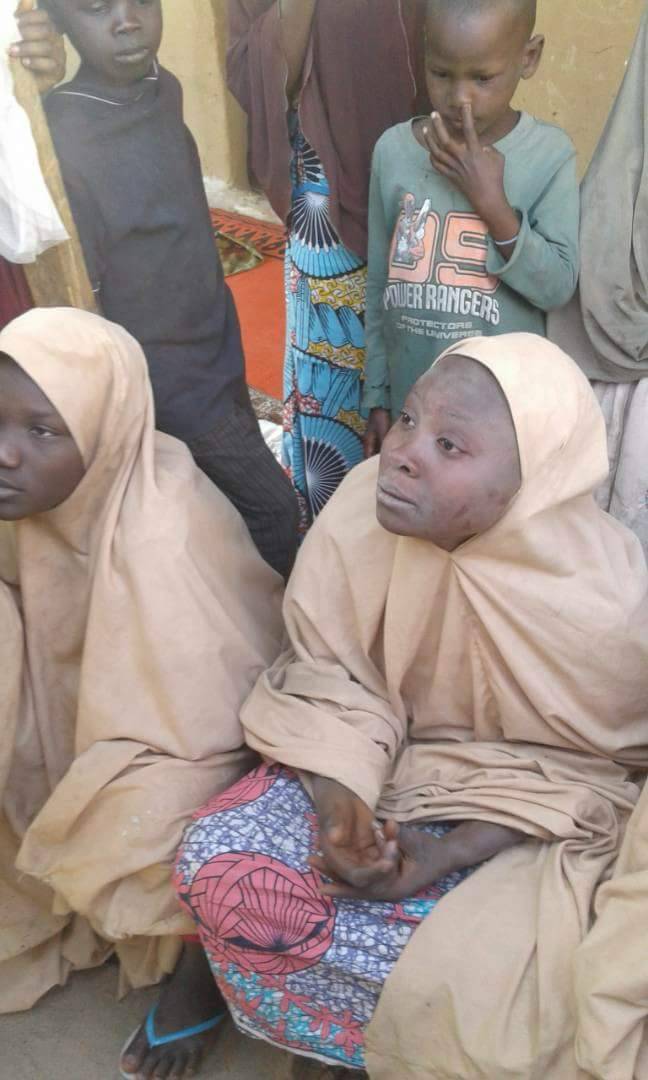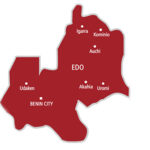
I am the father of three daughters, one of whom is a teenager. If I were to live in Dapchi, my daughter would attend the school the Dapchi girls were abducted from. So I can’t imagine the unspeakable horrors the parents of the abducted girls lived with. The parent in me is at once ecstatic over the release of the girls and distraught over the death of five of them and the continued captivity of one of them.
More than that, though, I am also worried that while no amount of money is too big to secure the release of the girls, the financial negotiations that led to their release would strengthen Boko Haram to launch more daring abductions of schoolgirls. It’s not a question of if; it’s a question of when. This is a vicious cycle.
After the usual, predictable protestations from government officials to the effect that no ransom had been paid to the terrorists to secure the release of the girls, SaharaReporters disclosed on Wednesday that five million euros had been paid to the Al-Barnawi faction of Boko Haram.“But a source who also participated in the negotiations with Boko Haram that led to release of over 80 Chibok girls in 2017 told SaharaReporters that the federal government not only made the ransom payment of five million euros to the insurgents,” the paper wrote, adding that government“also exchanged some Boko Haram prisoners in return for the Dapchi girls.”
It’s easy to dismiss this as speculative or even made-up, but examples from the immediate past should give us cause for pause. For instance, the government had denied paying any money to the Abubakar Shekau faction of Boko Haram for the release of 80 Chibok girls, but Wall Street Journal’s explosive and exhaustive report of December 24, 2017 proved beyond all shadows of doubt that“Nigeria paid a secret ransom of €3 million to free some of the kidnapped schoolgirls.” Three million euros adds up to nearly 1.5 billion naira.
In another case, the BBC reported that the government paid a hefty ransom to Boko Haram. “The ransom was €2m. Boko Haram asked for euros. They chose the suspects and gave us the list of girls who would be freed,” BBC quoted a source as confiding in them.
It’s pointless recounting all the numerous credible revelations of ransom payments to Boko Haram by the government because it was the subject of my column two weeks ago, but the point being made is that Boko Haram is now better financed by the Nigerian government than our military is. And, as sure as tomorrow’s date, the terrorist group will continue to use the war chest handed to them by our government to unleash more terror, abduct more girls, and earn more money. It has become a profitable racket.
While it’s hard to make the case that money shouldn’t be paid to secure the release scared, innocent girls, it’s also good to remember that the money paid to secure the release of some girls will be used to abduct other girls and inflict harm on others. So ransom payment isn’t a sustainable strategy. Any country that purchases its peace will perpetually be indebted to war.
But more than that, Boko Haram is now winning the ideational war. For instance, reports said that when members of the group returned the Dapchi girls, they stayed for a bit and preached against girl-child education. They told the girls to never go to school again or risk abduction. In a region that desperately needs education, especially girl-child education, we’ve been set back by probably five decades. No responsible parents will send their daughters to school again. The girls’ life is infinitely more important than their education.
Similarly, Boko Haram is clearly now being unwittingly lionized, deodorized, decriminalized, and mainstreamed by the government. The photos and videos shared by the Daily Nigerian online newspaper of jubilant crowds cheering Boko Haram terrorists in Dapchi while the group freely hoists its flag is disconcerting. The terrorist group isn’t just being financed by the Buhari government through handsome ransom payments; it is also being unintentionally glamorized. There is no bigger recruitment tool for the group than this. It’s a loud message that crime does pay.
In my April 13, 2013 column titled “Amnesty for Boko Haram or Pampering of Mass Murderers?” where I vigorously opposed calls by northern elders for the granting of “amnesty” to Boko Haram, I offered a short and long-term solution to the Boko Haram menace:
“What ‘northern elders’ need to do, if they are REALLY interested in solving the Boko Haram problem, is help mobilize ideational resources to defeat the ideology that gives birth to and sustains groups like Boko Haram,” I wrote.“This is a long-term strategic initiative that will not yield immediate results, but that is worthwhile nonetheless. In the short-run, our security agencies need to be equipped with 21st century intelligence-gathering capabilities to confront and defeat these primitive monsters of depravity that have made life miserable for millions of innocent people.”
I still stand by this.
Elements of successful nations
Every modern, successful nation must have five core elements:
(1) economic justice so that even the weakest and the most vulnerable stratum of the society can live, not just survive
(2) social justice so that accidents of birth, geography, and religious beliefs aren’t permanent barriers to the prospects of upward social and economic mobility
(3) a responsible and sincere government that serves the people and not the other way round
(4) a critical and watchful media system that acts as the watchdog of the government and not the lapdog of the temporary occupants of power
(5) an educated, vigilant, and engaged citizenry who are not susceptible to cheap elite manipulation and narrow primordial loyalties.
A nation that has only the first two elements is a fragile nation. A nation with just one of these elements has no reason to exist. And a nation with not a single one of these five core elements is Nigeria.

 Join Daily Trust WhatsApp Community For Quick Access To News and Happenings Around You.
Join Daily Trust WhatsApp Community For Quick Access To News and Happenings Around You.


